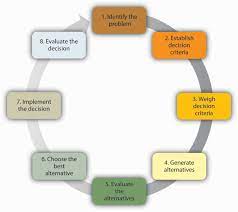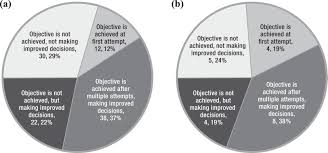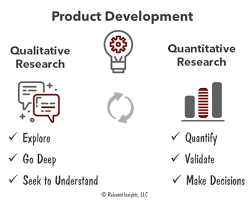Strategic Marketing Managers: The Decision-Makers Behind Successful Campaigns
In the fast-paced world of marketing, strategic marketing managers play a crucial role in shaping the success of a company’s campaigns. They are the decision-makers who navigate through a plethora of options and make critical choices that can make or break a brand’s reputation and market position.
One of the primary responsibilities of strategic marketing managers is to analyze market trends, consumer behavior, and competitor strategies. Armed with this information, they are able to identify opportunities and formulate effective marketing strategies. However, their decision-making process goes far beyond just analyzing data.
These professionals must possess a deep understanding of their target audience and be able to anticipate their needs and desires. By leveraging market research insights, they can identify the most effective channels to reach their target customers and craft compelling messages that resonate with them.
When it comes to making decisions, strategic marketing managers must carefully consider various factors such as budget constraints, resource allocation, and timing. They need to weigh the potential return on investment against the costs involved in implementing different marketing initiatives. This requires them to have a keen eye for cost-effective solutions that maximize impact.
Another crucial aspect of their decision-making process is staying up-to-date with emerging technologies and industry trends. With the rapid advancements in digital marketing tools and platforms, strategic marketing managers must constantly evaluate new opportunities for growth. This includes incorporating social media strategies, influencer partnerships, or even exploring innovative forms of advertising like virtual reality experiences.
Moreover, strategic marketing managers must also be adept at managing risks associated with their decisions. They understand that not every campaign will yield immediate results or resonate with every customer segment. However, by monitoring key performance indicators (KPIs) and conducting regular evaluations, they can quickly adapt their strategies if needed.
Collaboration is another essential element in the decision-making process for strategic marketing managers. They work closely with cross-functional teams including creative departments, sales teams, and product managers to ensure that their decisions align with the overall business objectives. By fostering open communication and leveraging the expertise of others, they can make well-informed decisions that drive success.
In conclusion, strategic marketing managers are the decision-makers who steer the course of a company’s marketing efforts. Their ability to analyze data, understand customer behavior, and anticipate market trends allows them to make informed choices that propel brands forward. Through careful consideration of various factors, they craft effective strategies that resonate with target audiences while maximizing return on investment. Their role is dynamic and ever-evolving as they adapt to emerging technologies and industry trends. With their expertise, companies can navigate through the complex world of marketing and achieve long-term success.
6 Tips for Strategic Marketing Managers to Make Informed Decisions
- Develop a comprehensive understanding of the target audience and their needs.
- Analyze the competition to identify opportunities for growth.
- Use data-driven insights to inform decision making.
- Identify key performance indicators (KPIs) to measure success.
- Stay up-to-date with industry trends and changes in consumer preferences and behaviors.
- Utilize customer feedback to refine strategies and adjust tactics accordingly
Develop a comprehensive understanding of the target audience and their needs.
Developing a Comprehensive Understanding of the Target Audience: A Key Tip for Strategic Marketing Managers
In the realm of strategic marketing, one tip stands out as paramount: developing a comprehensive understanding of the target audience and their needs. Strategic marketing managers recognize that success hinges on their ability to connect with customers on a deep level, and this can only be achieved by truly knowing who they are targeting.
To effectively reach and engage with the target audience, strategic marketing managers must go beyond surface-level demographics. They delve into the psychographics, motivations, preferences, and pain points of their customers. By conducting thorough market research, analyzing consumer behavior patterns, and leveraging data-driven insights, they gain valuable knowledge that fuels their decision-making process.
Understanding the target audience enables strategic marketing managers to tailor their messaging and campaigns specifically to resonate with them. By crafting messages that address their needs, desires, and aspirations, these managers can establish a meaningful connection that drives engagement and loyalty.
Moreover, this comprehensive understanding allows for more precise targeting. Strategic marketing managers can identify specific segments within their larger target audience and create customized strategies for each group. This level of personalization ensures that marketing efforts are more impactful and effective.
By understanding customer needs deeply, strategic marketing managers can also identify gaps in the market or untapped opportunities. They can uncover unmet needs or pain points that competitors have overlooked. Armed with this knowledge, they can develop innovative products or services that directly address these gaps and gain a competitive edge.
Furthermore, this understanding helps in selecting appropriate channels for reaching the target audience. Whether it’s social media platforms popular among millennials or traditional media outlets favored by older demographics, strategic marketing managers can make informed decisions about where to allocate resources for maximum impact.
In conclusion, developing a comprehensive understanding of the target audience is an essential tip for strategic marketing managers. By going beyond surface-level demographics and gaining insights into consumer behavior patterns and motivations, these managers can craft tailored messaging, identify untapped opportunities, and select the most effective channels for reaching their audience. This deep understanding forms the foundation for successful marketing campaigns that resonate with customers and drive business growth.
Analyze the competition to identify opportunities for growth.
Analyzing the Competition: Unveiling Opportunities for Growth in Strategic Marketing
In the competitive landscape of strategic marketing, one vital tip for effective decision-making is to analyze the competition. Strategic marketing managers understand that gaining a comprehensive understanding of their competitors can unlock valuable insights and uncover opportunities for growth.
By delving into competitor analysis, strategic marketing managers gain a deeper understanding of market trends, consumer preferences, and industry dynamics. This knowledge empowers them to identify gaps in the market that their brand can fill or areas where they can differentiate themselves from competitors.
One key aspect of analyzing the competition is studying their marketing strategies. By evaluating their messaging, positioning, and tactics, strategic marketing managers can identify successful approaches that resonate with target audiences. They can then adapt these strategies to fit their own brand’s unique value proposition and gain a competitive edge.
Furthermore, competitor analysis allows strategic marketing managers to identify untapped market segments or unmet customer needs. By studying how competitors are targeting specific demographics or addressing certain pain points, they can discover new opportunities for growth and tailor their own marketing efforts accordingly.
Analyzing the competition also helps in benchmarking performance. Strategic marketing managers can compare their brand’s market share, sales figures, customer satisfaction levels, and other performance metrics against those of competitors. This evaluation enables them to identify areas where they excel or lag behind and make data-driven decisions to improve their brand’s position.
Moreover, competitor analysis provides valuable insights into emerging trends and innovations within the industry. By keeping a close eye on what competitors are doing differently or what new technologies they are adopting, strategic marketing managers can stay ahead of the curve. This proactive approach enables them to anticipate changes in consumer behavior and adapt their strategies accordingly.
However, it’s important for strategic marketing managers not to solely focus on imitating competitors. The goal is not to replicate what others are doing but rather to gain inspiration and insights that will help shape unique strategies tailored to their brand’s strengths and target audience.
In conclusion, analyzing the competition is a crucial tip for strategic marketing managers when making decisions. By studying competitors’ strategies, identifying gaps in the market, benchmarking performance, and staying abreast of industry trends, they can uncover opportunities for growth. This knowledge equips them to make informed decisions that position their brand for success in a competitive marketplace.
Use data-driven insights to inform decision making.
Use Data-Driven Insights to Inform Decision Making: A Key Tip for Strategic Marketing Managers
In today’s digital age, data has become a powerful tool for strategic marketing managers. It provides valuable insights that can inform decision making and drive successful marketing campaigns. By utilizing data-driven insights, these managers can make informed choices that maximize their chances of success.
Data-driven decision making involves collecting and analyzing relevant information to gain a deeper understanding of consumer behavior, market trends, and campaign performance. This data can come from various sources such as customer surveys, website analytics, social media metrics, and sales figures. By leveraging this information, strategic marketing managers can uncover patterns, identify opportunities, and make well-informed decisions.
One of the primary benefits of using data-driven insights is the ability to understand customer preferences and behaviors more accurately. By analyzing demographic data and purchase patterns, managers can segment their target audience effectively. This segmentation allows them to tailor their marketing messages and strategies to specific customer groups, increasing the chances of engagement and conversion.
Furthermore, data-driven insights enable strategic marketing managers to measure the effectiveness of their campaigns in real-time. They can track key performance indicators (KPIs) such as click-through rates, conversion rates, and return on investment (ROI). This allows them to assess the impact of their decisions promptly and make necessary adjustments if needed.
Data also helps in identifying trends and predicting future market conditions. Strategic marketing managers can analyze historical data to identify patterns or anticipate shifts in consumer behavior. This information is invaluable when developing long-term marketing strategies or launching new products or services.
However, it is crucial for strategic marketing managers to interpret data accurately and avoid falling into the trap of analysis paralysis. With an abundance of information available, it’s easy to get overwhelmed or misinterpret the findings. Therefore, it is essential for these professionals to have a solid understanding of statistical analysis techniques or work closely with experts who can help interpret the data accurately.
In conclusion, data-driven insights are a game-changer for strategic marketing managers. By leveraging data, they can gain valuable insights into customer behavior, market trends, and campaign performance. Armed with this information, managers can make well-informed decisions that drive successful marketing campaigns. However, it is important to interpret the data accurately and avoid getting overwhelmed by excessive analysis. With the right balance of data-driven decision making and strategic thinking, marketing managers can pave the way for their brands’ success in today’s competitive landscape.
Identify key performance indicators (KPIs) to measure success.
Identifying Key Performance Indicators (KPIs) to Measure Success: A Crucial Tip for Strategic Marketing Managers
In the realm of strategic marketing, success is not merely a subjective notion. It requires concrete metrics and measurable outcomes. This is where Key Performance Indicators (KPIs) come into play, serving as vital tools for strategic marketing managers to assess the effectiveness of their campaigns and make informed decisions.
KPIs are specific metrics that align with the goals and objectives of a marketing campaign. They provide valuable insights into various aspects of performance, enabling strategic marketing managers to gauge progress, identify areas for improvement, and ultimately measure success.
When it comes to selecting KPIs, strategic marketing managers must consider the unique objectives of their campaigns. Are they aiming to increase brand awareness, drive website traffic, generate leads, or boost conversion rates? Each goal requires different KPIs to accurately measure progress.
For instance, if the objective is to enhance brand awareness, KPIs such as reach (the number of people exposed to the campaign) or social media engagement (likes, shares, comments) can be used as indicators of success. On the other hand, if the focus is on lead generation or conversion rates, KPIs like click-through rates or conversion rates can provide valuable insights.
Strategic marketing managers must also ensure that their chosen KPIs are relevant and aligned with their overall business objectives. It’s crucial to select metrics that truly reflect progress towards desired outcomes rather than getting caught up in vanity metrics that may not contribute directly to business growth.
Once the appropriate KPIs have been identified, it’s important for strategic marketing managers to establish a system for tracking and analyzing data regularly. This allows them to monitor performance trends over time and make data-driven decisions based on accurate information.
Moreover, it’s essential for strategic marketing managers to set realistic benchmarks or targets for each KPI. These benchmarks serve as milestones that help assess progress and guide decision-making. Regularly comparing actual performance against these benchmarks enables marketing managers to identify areas where adjustments or optimizations are needed.
By incorporating the practice of identifying KPIs into their decision-making process, strategic marketing managers can effectively measure the success of their campaigns and make data-driven decisions. This empowers them to allocate resources wisely, optimize strategies, and ensure that their marketing efforts are aligned with overall business objectives.
In conclusion, identifying Key Performance Indicators (KPIs) is a crucial tip for strategic marketing managers. These metrics provide valuable insights into campaign performance, allowing managers to measure success and make informed decisions. By selecting relevant KPIs aligned with business objectives, tracking data regularly, and setting realistic benchmarks, strategic marketing managers can navigate the complex world of marketing with confidence and achieve tangible results.
Stay up-to-date with industry trends and changes in consumer preferences and behaviors.
Staying Ahead: The Key to Success for Strategic Marketing Managers
In the ever-evolving world of marketing, strategic marketing managers hold a vital role in driving success for businesses. One crucial tip that sets them apart is their ability to stay up-to-date with industry trends and changes in consumer preferences and behaviors.
Consumer preferences and behaviors are constantly shifting, influenced by factors such as technological advancements, social movements, and economic fluctuations. By staying attuned to these changes, strategic marketing managers can make informed decisions that keep their brands relevant and ahead of the competition.
To stay up-to-date with industry trends, strategic marketing managers must actively engage in continuous learning. They invest time in reading industry publications, attending conferences, and participating in webinars or workshops. By doing so, they gain valuable insights into emerging market trends and new strategies being adopted by competitors.
Furthermore, keeping a close eye on changes in consumer preferences and behaviors is equally important. Strategic marketing managers conduct market research studies, analyze customer feedback, and monitor social media conversations to understand what drives consumer decision-making. This enables them to tailor marketing strategies that resonate with their target audience.
By staying ahead of industry trends and understanding consumer preferences, strategic marketing managers can make proactive decisions rather than reactive ones. They can identify new opportunities for growth or adjust existing strategies to meet evolving customer needs. This not only helps companies maintain a competitive edge but also allows them to build stronger relationships with their customers.
Additionally, staying updated with industry trends also helps strategic marketing managers anticipate potential challenges or disruptions that may impact their business. By being aware of upcoming regulatory changes or shifts in technology, they can proactively plan for contingencies and minimize any negative impact on their brand’s reputation or operations.
In conclusion, staying up-to-date with industry trends and changes in consumer preferences is a valuable tip for strategic marketing managers. It empowers them to make informed decisions that drive success for their brands. By investing time in continuous learning, conducting market research, and actively monitoring consumer behaviors, they can stay ahead of the curve and navigate the dynamic marketing landscape with confidence.
Utilize customer feedback to refine strategies and adjust tactics accordingly
Utilize Customer Feedback: A Valuable Tool for Strategic Marketing Managers
In the realm of strategic marketing, customer feedback is an invaluable resource that can significantly impact decision-making. Smart strategic marketing managers understand the power of listening to their customers and leveraging their insights to refine strategies and adjust tactics accordingly.
Customer feedback provides a direct line of communication between businesses and their target audience. By actively seeking feedback through surveys, reviews, or social media interactions, strategic marketing managers gain valuable insights into customer preferences, needs, and pain points. This information serves as a compass, guiding them towards making informed decisions that resonate with their customers.
One way to utilize customer feedback is by identifying areas for improvement in existing marketing strategies. By analyzing feedback patterns, strategic marketing managers can pinpoint potential gaps or weaknesses in their current approach. This allows them to make necessary adjustments and refine their strategies to better align with customer expectations.
Moreover, customer feedback helps in understanding the effectiveness of specific tactics employed in marketing campaigns. By monitoring feedback related to different initiatives or channels, strategic marketing managers can gauge which tactics are resonating with customers and which ones may need tweaking or elimination altogether. This iterative process ensures that resources are allocated effectively and that efforts are focused on what truly drives results.
Customer feedback also plays a pivotal role in product development and innovation. By actively listening to customers’ suggestions or concerns, strategic marketing managers can identify emerging trends or untapped market opportunities. This enables them to adapt their strategies accordingly and develop products or services that meet the evolving needs of their target audience.
Furthermore, utilizing customer feedback fosters a sense of trust and loyalty among customers. When businesses demonstrate that they value customer opinions by actively seeking feedback and implementing changes based on those insights, it creates a positive brand image. Customers appreciate being heard and are more likely to remain engaged with a company that values their input.
In conclusion, strategic marketing managers recognize the importance of utilizing customer feedback as a powerful tool for decision-making. By actively seeking and analyzing feedback, they gain valuable insights into customer preferences, identify areas for improvement, and refine their strategies accordingly. This iterative process not only enhances the effectiveness of marketing campaigns but also fosters a stronger bond between businesses and their customers. By harnessing the power of customer feedback, strategic marketing managers can navigate the ever-changing landscape of marketing with confidence and drive long-term success.



